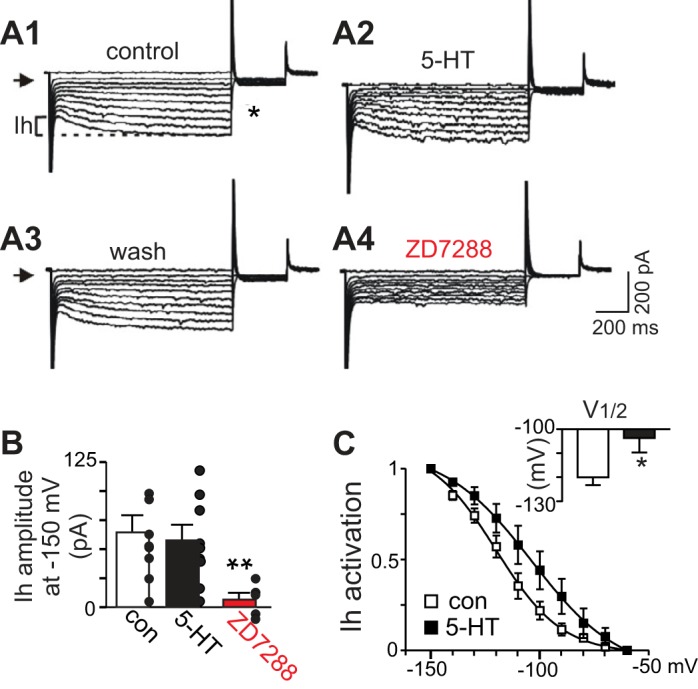Fig. 6.

Serotonin causes a depolarizing shift in the voltage-dependent activation of hyperpolarization-activated inward current (Ih) in RTN chemoreceptors. A: current responses to hyperpolarizing voltage steps recorded under control conditions (A1), in serotonin (5 μM; A2), after being washed serotonin for 5 min (A3), and in ZD7288 (50 μM). Note that serotonin caused a modest decrease in holding current (arrows indicate zero current levels). B: summary data (n = 6 cells/animals) showing that serotonin did not increase maximal Ih amplitude, measured as the difference between steady-state and instantaneous currents at −150 mV (illustrated in A1). C: Ih activation curves where tail currents were measured during a fixed step to −70 mV that followed each test pulse (* in A) and normalized data were fitted using the Boltzmann equation, under control conditions and in serotonin. Serotonin causes a depolarizing shift in the voltage-dependent activation of Ih (V1/2 values inset, n = 7). *P < 0.05, **P < 0.01.
